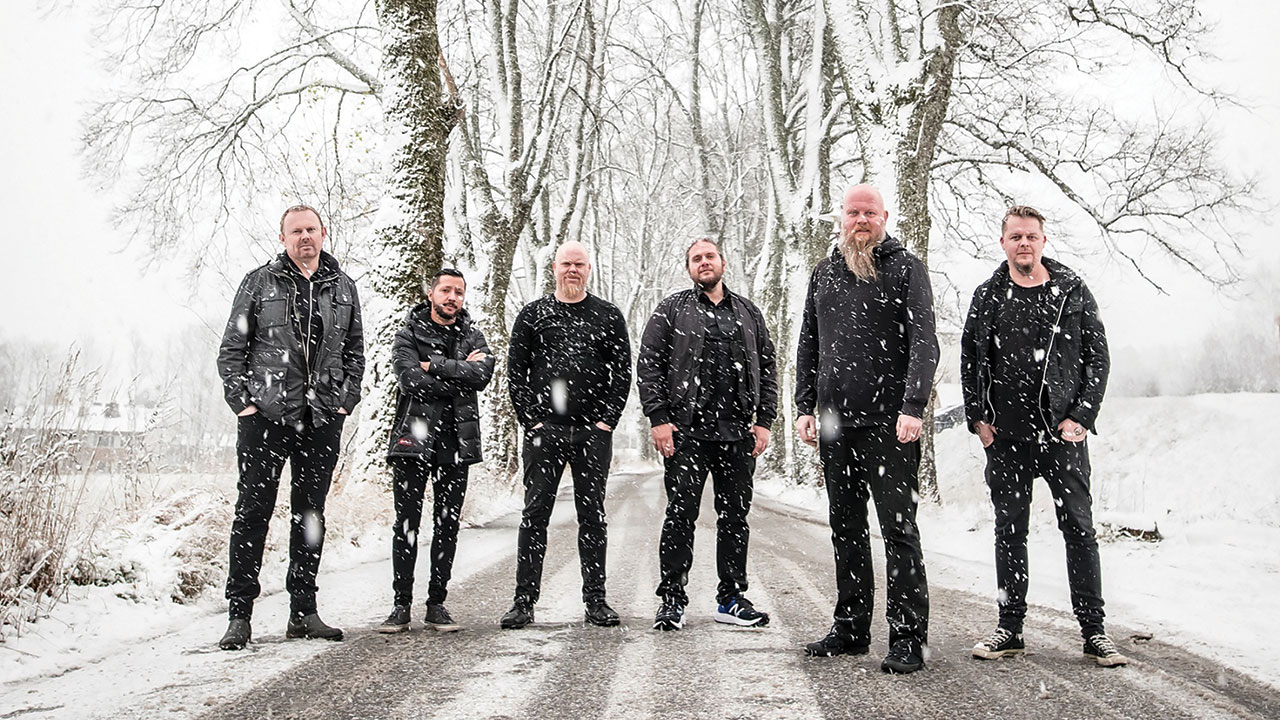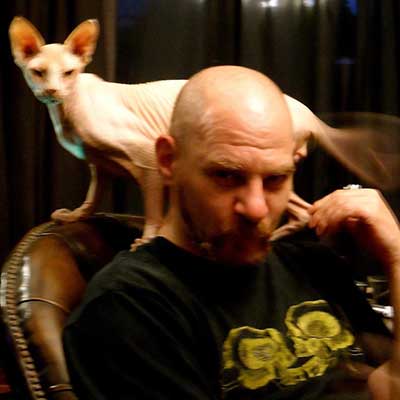Over the last three decades, Kristiansand’s Green Carnation have striven to wring hope from the bleakest of circumstances, and to dig deep within themselves to nurture the most fertile of musical shoots. Having emerged from the heart of Norway’s metal scene – founder member Terje Vik Schei, aka Tchort, played bass on Emperor’s landmark 1994 album, In The Nightside Eclipse – the band expanded into richly progressive realms far beyond their gothic and doom-laden origins. Their second album, 2001’s Light Of Day, Day Of Darkness, a seminal and widely regarded masterpiece, took the form of a single, hour-long track whose unforgettably resonant core motif and far-ranging tonal explorations endeavoured to come to terms with the death of Tchort’s daughter while welcoming the birth of a new son. After covering varied yet immediately identifiable ground with three more albums, the band split up in 2007, reconvening seven years later, initially as a live entity only.
Fourteen years after the release of their last album, The Acoustic Verses, Green Carnation have emerged from the studio to further their legacy once more, only for their new album, Leaves Of Yesteryear, to arrive in the middle of a global pandemic that’s seen the planet grind to a near halt. For vocalist and co-lyricist Kjetil Nordhus, the current situation might be terrifying, but neither he nor his colleagues are going to be daunted by the strange new world they’ve returned to.
“These are worrying times,” he admits, “both for the music scene and the world as a whole. But there’s been an explosion of online activity and live streamed concerts, and we are doing the same. The album release show we were going to play on May 23, we’re going to stream live instead. Of course, everything could be back to normal again by then, but I kind of doubt it. We’re a ‘more is more’ kind of band, so it’s probably not just going to be a concert, it’s going to be several hours of different kinds of interviews and stuff. We have to see it in a positive way and make the best out of it.”
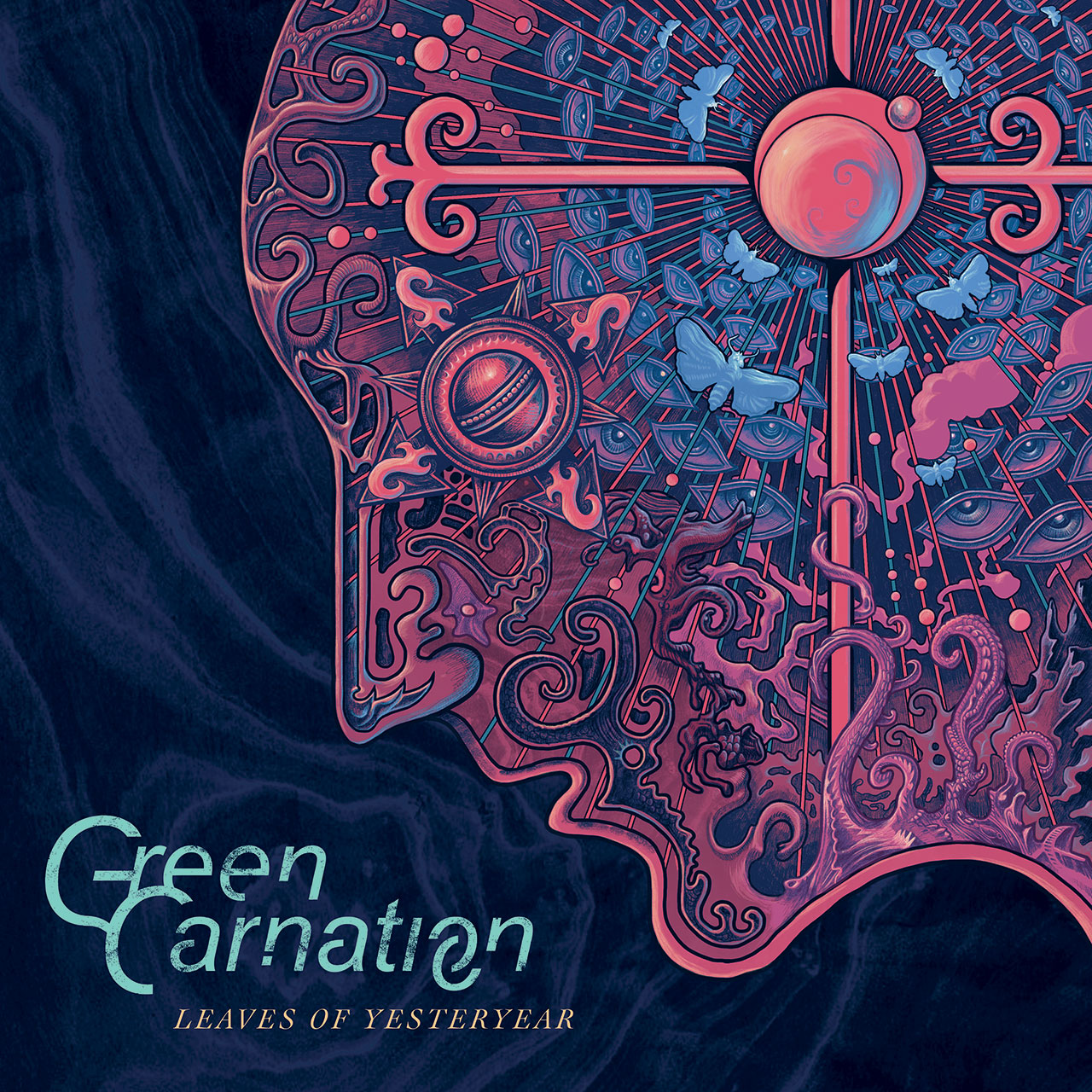
Green Carnation’s reunion was never a certainty. As Nordhus recalls, “For the first five years after that split I thought it would be permanent. It was Tchort who decided to call it a day and when we talk about it now, the reason was that we really didn’t know what to do next. I think he felt that he’d lost a bit of control over the band and we’d all just moved in different directions all at the same time.”
The decision to reconvene came after they were asked to return to the unique site of a 2006 concert, recorded for the DVD A Night Under The Dam, where they played The Acoustic Verses in full with a string orchestra under the 30-foot Nåvatn-3 dam deep in the Norwegian mountains.
“It was a crazy location,” says Nordhus, “with millions and millions of gallons of water behind us. They were going to tear it down and they asked us if we wanted to do the last show there. And now everything is underwater. So that was enough for us to come back together and talk about whether we wanted to do this. That DVD holds a very special piece of Green Carnation’s history, and that was a good enough excuse to try to see if we still enjoyed playing together, which, luckily, we did.
“Soon after that we started planning the 15th anniversary of Light Of Day, Day Of Darkness, because that was only two years away at the time. So we thought that could be our way back into the scene, and the original plan was just to play together for those shows and maybe, if it felt right, to do something more after that.”
If it was confirmation they were after, those shows playing Light Of Day… in full offered it to an extent the band themselves weren’t prepared for.
“The response from the crowds at the live shows was out of this world,” says Nordhus. “I remember when we were playing the first show in Bergen, the first show at a festival called Blastfest, and we didn’t expect it to be that emotional. We were a bit shocked afterwards. I talked to people who felt, as we say in Norway, chewed up and spat out again. It was mentally draining, and many of the people I talked to needed some time for themselves afterwards. Of course, we know that Light Of Day… is very special for people, but you don’t see people crying at a concert every day. So there was a lot of emotion going around, and it’s very powerful.”
As momentous as those shows were, including another rapturously received set at Tilburg at Netherlands’ revered Roadburn festival, the sense of triumph and reconnection, both to the band’s fans and their own sense of who they were, soon gave way to a period of soul-searching when it came to deciding how they were going to move forward.
“When we started doing a 2017 set,” Nordhus admits, “which consisted of everything else other than Light Of Day…, we weren’t quite able to recreate that magic live, and so we did a lot of thinking and adjusting. We went into ourselves and asked ourselves: ‘What are the best sides of Green Carnation? What are we doing best with this line-up? What don’t we do that well, for example?’ And you could say that, maybe, from 2000-2006, when we were quite active, it was kind of a searching period for us, because all our albums were so different. So we started to work on that live, and do the things we do best, that nobody else does. So getting back together, we talked a lot about what is Green Carnation in 2019?”
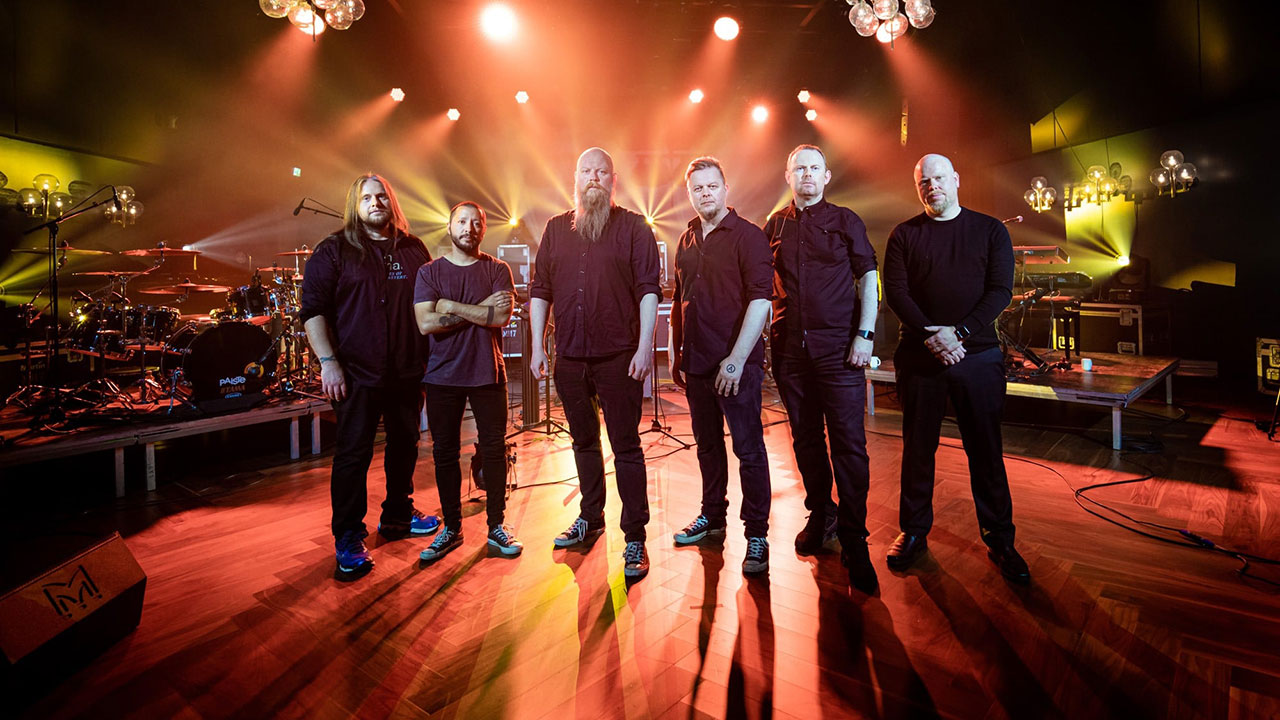
The answers emerged when they went into the studio to record what was to become Leaves Of Yesteryear. Originally intended as an EP, but expanded to a full album due to both the advice of labels and the creative roll they found themselves on, the (mostly lengthy) five-track release sees Green Carnation looking back to the past for inspiration as well as looking ahead to the future.
Its three original songs unveil a tantalising array of progressive powers at the band’s command. The title track’s epic, narrative scope is urged on through huge, juddering riffs into realms of soaring yet plaintive grandeur. Sentinels’ sloshing riffs rise up into wild, Hammond-led turbulence and take-off. Hounds’ spacious, loping nods to the Sabbath-tinged classic rock of countrymen Sahg are given a further, sonically aerated sense of wonder and bird’s-eye view of a broad musical landscape
unfolding once more. But as well as a sumptuously pastoral cover of Sabbath’s Solitude that carries even more atmosphere steeped echoes of The Acoustic Verses, the 15-and-a-half-minute My Dark Reflections Of Life And Death is a re-recording of the track from their debut album, Journey To The End Of The Night, whose lyrics contained the seed for what was to become the Light Of Day, Day Of Darkness album.
“We have done a few things that are very typical of Green Carnation in the past,” says Nordhus. “We needed to work on that and give it a new sound, but I think we succeeded in that, and it’s easy to hear that this is still us. It’s maybe an untraditional thing to re-record a song, and it’s 20 years now since that was first recorded, but the main reason we bought it on to the album is that we started playing it live and we made a live-friendly version of it. But we needed to do it with the essence of the band today, and we thought it worked out really well, and we really wanted to give our old audience something new, which they knew from before. I do really think
that sounds like a Green Carnation song in 2020.
“You could say that this album is a tribute to the past,” he continues, “because we have done a lot of work in the early years that’s important to us now. We do have quite a lot of new music on the album, but to be poetic, it’s also a tribute to the band’s future.”
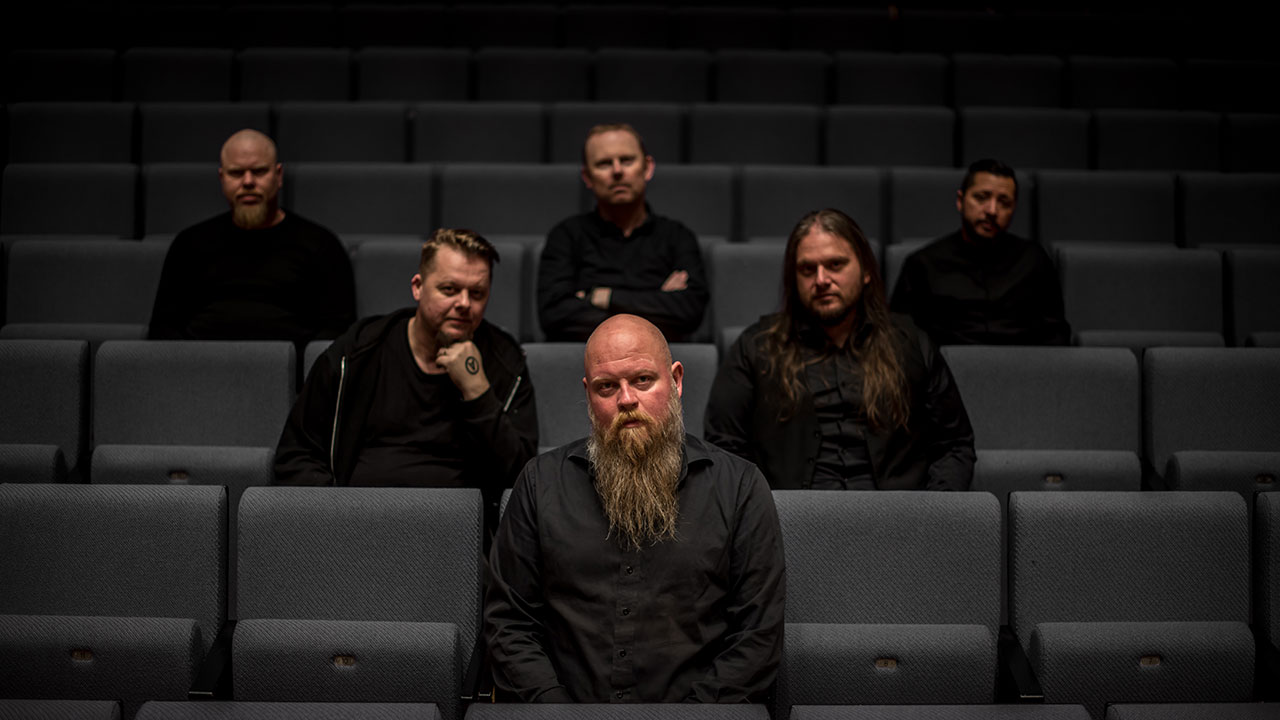
With the bandmembers pulling in different musical directions at the time of the spit in 2007, how did they ensure everyone had a shared vision this time around?
“We’re still very different when it comes to bringing our own musical leanings into the studio,” Nordhus explains. “We have Sabbath and even pop influences, and our keyboard player is originally a blues and jazz man. But we all have hindsight now, and these Green Carnation genes in us, so we use that part of our musicality when we’re together, and our producer, Endre Kirkesola, played keyboards on Light Of Day…, so that’s another parallel that binds us together.”
Light Of Day, Day Of Darkness would have a great musical impact for years to come, not least on French metal band Gojira, whose use of third-eye-open, voice-of-the-cosmos vocals echo that album’s ability to transpose deeply personal trauma into the most universal of frequencies. Aside from this, the impact of Green Carnation – along with the band that splintered from their first line-up, In The Woods… – can be measured by the extent to which they helped lead their native scene from stark underground to a broader, more progressive palette.
“Kristiansand is a small town, and it was a sound there of that time,” Nordhus explains. “The bands admired each other, and I do think that the geography has something to do with that, because you have the same musical references as the other people of your age. In The Woods… were really inspired by a Norwegian band called Tula, and Jan [Kenneth Transeth, original ITW vocalist] says you can hear their albums and draw a picture of where they live. So there was an element of pastoralism going around musically; I’m sure ITW drew alot of inspiration from that, and that rubs off. You can hear that we were from the same family.”
That process of transformation is also the continuity that binds the Green Carnation of then, now, and for whatever it is that the future holds for the band.
Nordhus concludes, “When we signed to [metal label] Season Of Mist after Light Of Day… we gave them a prog rock album, and they didn’t understand what we were doing. We joke with them when it comes to that now. And then we went on to The Acoustic Verses just a few years afterwards. Even so, at the time we found it really interesting to search in new genres and for new inspirations for each and every album. What you hear today could be an essence of what we found at the time.”
This article originally appeared in issue 109 of Prog Magazine.
